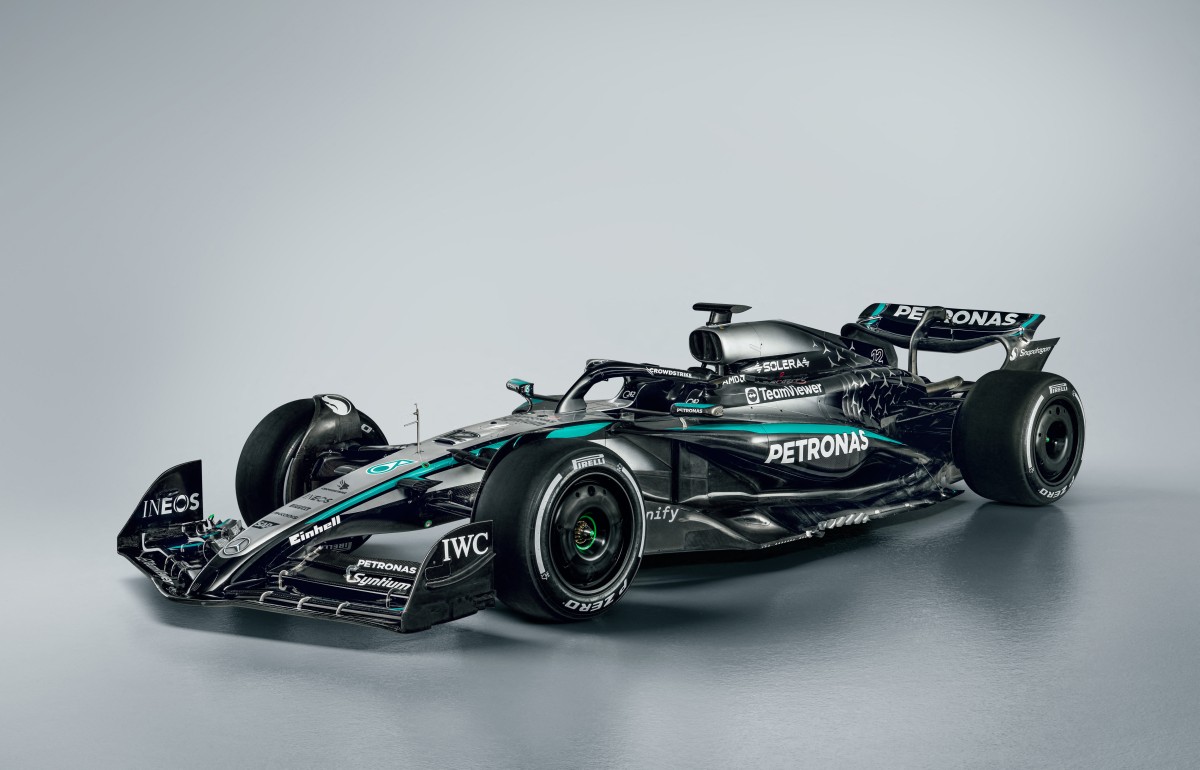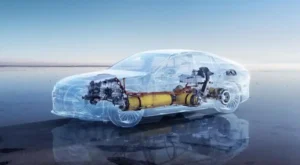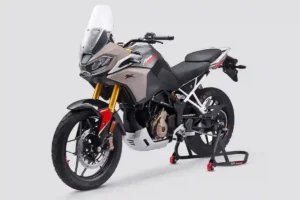
Based on in-depth insights from trusted industry sources, F1 and team insiders, we’ve put together the most accurate analysis yet of how much it really costs to build a Mercedes-AMG F1 car in 2025. This price is so close to accurate, it reflects the true value of the cutting-edge components that power one of the fastest machines on the planet.
From the high-tech hybrid power unit to the ultra-lightweight carbon fiber chassis, every part of an F1 car is built for maximum performance, and comes with a price tag to match. Whether you’re an F1 fan, a tech enthusiast, or just curious about what goes into building a modern race car, this analysis gives you a clear picture of where the millions are spent.
Let’s take a closer look at the key components and their costs, revealing what makes a Formula 1 car one of the most advanced (and expensive) vehicles in the world.
Mercedes AMG F1 Car Component Prices Table (Approx)
| Component | Price Range (USD) | Average Price (USD) | INR Price (Approx.) | Key Details |
|---|---|---|---|---|
| Power Unit (Engine) | $7M – $18.3M | $12,650,000 | ₹105.37 Cr | 1.6L V6 turbo-hybrid with MGU-K & MGU-H; most expensive component |
| Chassis / Monocoque | $500K – $700K | $600,000 | ₹5.00 Cr | Carbon fiber core structure |
| Gearbox | $250K – $500K | $375,000 | ₹3.12 Cr | 8-speed sequential transmission |
| Front Wing | $100K – $150K | $125,000 | ₹1.04 Cr | Highly aerodynamic component |
| Rear Wing | $61K – $150K | $105,500 | ₹88.78 Lakh | Includes DRS (Drag Reduction System) |
| Steering Wheel | $35K – $100K | $67,500 | ₹56.22 Lakh | Features 20+ buttons, screens, and functions |
| Brake System (Complete) | $55K – $200K | $127,500 | ₹1.06 Cr | Brembo carbon braking setup |
| Hydraulic System | $123K – $200K | $161,500 | ₹1.34 Cr | Powers subsystems like DRS and gear changes |
| Suspension System | $2.5M – $4M | $3,250,000 | ₹27.07 Cr | Advanced push-rod with dampers |
| Electronics & Wiring | $1.5M – $2.5M | $2,000,000 | ₹16.66 Cr | ECU, wiring, sensors, telemetry |
| Floor & Bargeboards | $100K – $126K | $113,000 | ₹94.12 Lakh | Vital for underbody aero/downforce |
| Fuel Tank | $22K – $30K | $26,000 | ₹21.65 Lakh | Kevlar-reinforced fuel bladder |
| Halo (Safety Device) | $12K – $17K | $14,500 | ₹12.07 Lakh | Titanium crash protection for driver |
| Tires (Per Set) | $2,500 – $2,700 | $2,600 | ₹2.16 Lakh | 13 sets used per race weekend |
| Tire Blankets (Weekend) | $22K – $27.8K | $24,922 | ₹20.76 Lakh | Preheat tires for optimal grip |
| Brake Discs & Pads | $15K – $69K | $42,000 | ₹34.98 Lakh | Carbon discs and pads |
| Wheels / Rims | $5K – $15K | $10,000 | ₹8.33 Lakh | Lightweight racing rims from BBS |
| Data Acquisition System | $300K – $1M | $650,000 | ₹5.41 Cr | Collects & processes real-time sensor data |
| Exhaust System | $200K – $300K | $250,000 | ₹2.08 Cr | Integrated with MGU-H for hybrid recovery |
Fuel Costs (2025 & Projected 2026)
Current E10 Fuel (2025)
- Price per liter: $22 – $33 (₹1,837 – ₹2,756)
- Race consumption: 110 kg maximum per race
- Cost per race: Approximately $2,750 (~₹229,625)
- Annual fuel budget: Over $500,000 per team
2026 Sustainable Fuel
- Projected price per liter: $170 – $300 (₹14,195 – ₹25,050)
- Cost per race weekend: $80,000 – $100,000 (₹6,680,000 – ₹8,350,000)
- Annual impact: $1.9 – $2.4 million per team
Race Weekend Operational Costs
Per Driver, Per Race Weekend:
- Tires: $35,100 (13 sets × $2,700)
- Tire Blankets: $27,845
- Fuel: $2,750
- Total consumables: $65,695 per driver per weekend (₹5,485,532)
Total Car Cost Summary
Complete F1 Car Cost Range:
- Minimum: $10,747,000 (₹897,374,500)
- Maximum: $24,473,000 (₹2,043,495,000)
- Industry Average: $17,610,000 (₹2,043,495,000)
This fits well with the understanding of F1 experts and insiders. For example, Red Bull estimates the cost of a modern Formula 1 car at around $15 million, while Motorsport magazine puts it even higher at $20.62 million. In various technical reports, the typical price range for a current-generation F1 car is between $12-20 million, depending on the team’s development, upgrades and component choices. This is a reminder of the amount of sophisticated engineering and investment that goes into building racing machines.
| Manufacturer | Annual Engine Budget (USD) | Annual Engine Budget (INR) |
|---|---|---|
| Mercedes | $398 million | ₹3,31,63,40,000 (₹331.63 Cr) |
| Ferrari | $374 million | ₹3,11,54,20,000 (₹311.54 Cr) |
| Renault | $290 million | ₹2,41,57,00,000 (₹241.57 Cr) |
| Honda | $261 million | ₹2,17,45,30,000 (₹217.45 Cr) |
Cost Cap Impact in Formula 1 (2025)
With the 2025 Formula 1 cost cap set at $140.4 million, teams will have to plan every rupee and dollar with precision. One of the biggest challenges? F1 power units. It can take up a huge chunk of 50% to 90% of the total budget, depending on its development and operation. That means teams will have to strike the perfect balance between performance, efficiency and reliability to stay competitive throughout the season.
These high figures aren’t just about raw power – they reflect the incredible engineering, cutting-edge technology, exotic materials and unrivaled precision required at the pinnacle of motorsport. From carbon fiber to titanium, and from wind tunnel testing to hybrid energy recovery systems, every component is built to the highest standard, pushing both innovation and investment to the limit.
Mercedes AMG F1 Cars FAQs
How Much Price of Mercedes AMG F1 Car ?
The price of a Mercedes AMG F1 Car is between $12-20 million dollar, which is equivalent to ₹103 Cr in Indian Rupees.
What is the most expensive part/component in an F1 car ?
The Power Unit (Engine) is the most expensive component in an F1 car, costing between $7M – $18.3M, and is equivalent to ₹105.37 Cr in Indian price.
What is Halo (Safety Device) in Mercedes AMG F1 and another F1 car
The Halo (Safety Device) in F1 cars is made of very strong Titanium, which provides protection to the driver in the event of an accident.
How Much Price Of RedBull F1 Car ?
The price of a RedBull F1 Car is between $15 million dollar, which is equivalent to ₹129 Cr in Indian Rupees.
Sources : Mercedes-AMG PETRONAS F1 Team











